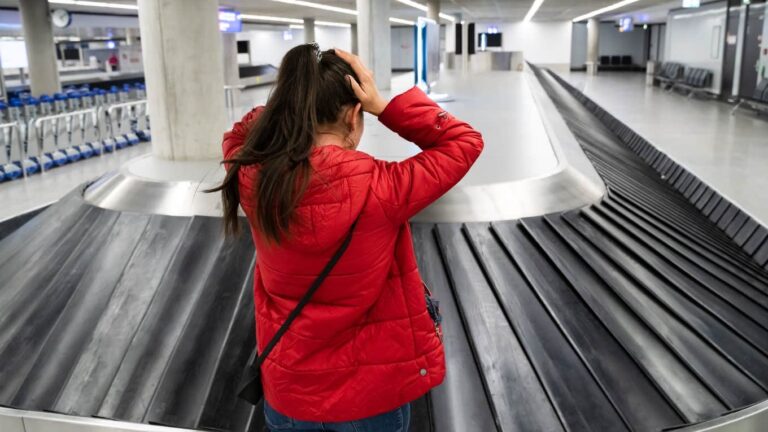Ignore These 3 Little Tips and Lose Over $399 Next Time You Book a Flight
Booking a flight can often be a complex and overwhelming process, but paying attention to the small details can make a significant difference in your overall travel expenses. Here are three crucial tips you should never ignore if you want to avoid losing hundreds of dollars on your next flight.
1. Compare Prices Across Multiple Platforms
Why It’s Important
Many travelers fall into the trap of booking directly through an airline’s website or sticking to a single travel site out of convenience or brand loyalty. However, this approach often leads to missing out on better deals available elsewhere. Airline ticket prices can vary widely across different platforms due to varying commission structures, special promotions, and exclusive deals.
What You Could Lose
By not taking the time to compare prices, you might end up paying significantly more than necessary for your flight. For instance, a fare that appears to be the best deal on one site could be over $100 cheaper on another platform. Over a few flights, this can quickly add up to a substantial amount of money.
Tip
Utilize comparison tools and websites like Google Flights, Skyscanner, Kayak, and Momondo to check prices across multiple airlines and travel sites. These platforms aggregate fares from numerous sources, allowing you to see all your options at a glance. Additionally, consider exploring lesser-known or regional travel agencies that may offer exclusive deals or promotional codes not found on larger platforms.
2. Pay Attention to Baggage Fees
Why It’s Important
Baggage fees are one of the most commonly overlooked costs associated with air travel. Different airlines have varying baggage policies, and what might be included as a free service with one airline could incur hefty fees with another. Overlooking these fees can lead to significant additional costs at the airport.
What You Could Lose
Extra baggage fees can quickly add up, especially if you’re traveling with multiple bags or heavier luggage. Depending on the airline and the route, checked baggage fees can range from $25 to $75 per bag, while overweight baggage fees can be even higher. These costs can easily exceed $100 per flight, turning an initially cheap ticket into an expensive journey.
Tip
Before booking your flight, review the airline’s baggage policy in detail. Pay attention to the allowances for both carry-on and checked luggage. Some budget airlines charge high fees for checked and even carry-on luggage, which can dramatically increase your total travel cost. If you’re planning to travel with more than just a personal item, factor these costs into your overall travel budget. Consider fare options that include baggage or look for airlines that offer free checked bags with certain fare classes or credit card memberships.
3. Book at the Right Time
Why It’s Important
The timing of your booking plays a critical role in determining the price of your flight. Booking too early or too late can lead to higher fares, as airlines often adjust prices based on demand, availability, and booking patterns. Understanding the best time to book can help you secure the lowest possible fare.
What You Could Lose
Booking your flight at the wrong time can result in significantly higher prices. For example, booking too close to your departure date can mean paying a premium for last-minute availability. Conversely, booking too far in advance might mean you miss out on fare drops or special promotions. These timing errors can cost you upwards of $199 per ticket, especially for international flights.
Tip
To maximize savings, aim to book your flight around 6-8 weeks before your departure date for domestic flights and 3-4 months for international flights. This window typically offers a balance between availability and price. Use fare tracking tools like Hopper or set price alerts on Google Flights to monitor fare changes and receive notifications when prices drop. These tools analyze historical data and predict the best times to book, helping you to lock in the lowest fares.
Additional Strategies to Save
1. Use Credit Card Rewards and Points
Leveraging credit card rewards and frequent flyer points can further reduce your travel costs. Many travel credit cards offer sign-up bonuses, points for every dollar spent, and additional perks such as free checked bags, priority boarding, and travel insurance. Make sure to use a card that maximizes your benefits based on your travel habits.
2. Flexible Travel Dates and Airports
Being flexible with your travel dates and airports can also lead to significant savings. Mid-week flights are often cheaper than weekend flights, and flying into or out of secondary airports can reduce costs. Use flexible date search options on booking sites to compare prices across a range of dates.
3. Consider Alternative Airlines
While major airlines are often the first choice, considering smaller or budget carriers can provide lower fares. However, be sure to read the fine print and understand any additional fees or restrictions associated with these airlines.
Conclusion
By ignoring these three essential tips, you risk losing over $399 on your next flight booking. Always compare prices across multiple platforms, be mindful of baggage fees, and book at the optimal time to secure the best deals. Additionally, leveraging credit card rewards, being flexible with your travel plans, and considering alternative airlines can further enhance your savings. With a bit of extra effort and attention to detail, you can save a substantial amount of money and enjoy a more stress-free travel experience.






